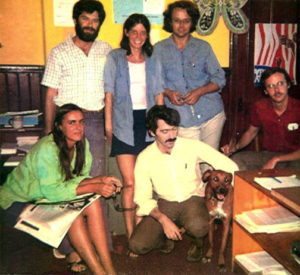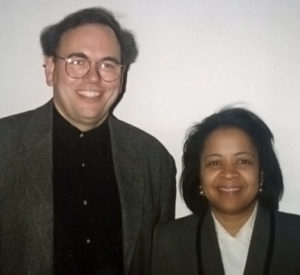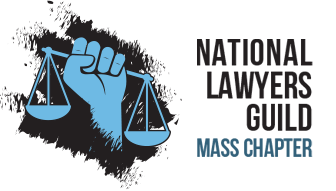An Early History of the NLG-Massachusetts Chapter
Boston Law Communes in 1969

Some of the NLG-Mass Chapter founders.
Boston in 1969 was vibrant with anti-war and community organizing collectives, widespread campus activism, revolutionary parties, and the local offices of all sorts of progressive national groups. Most important to the NLG-Mass Chapter were the local law communes.
These communes practiced law in a new way, involving themselves directly in anti-war and community work as participants on the front lines. They rejected all hierarchy – especially distinctions between lawyers and non-lawyers. They functioned as the groups they served: egalitarian collectives making decisions by consensus. The lawyers rejected class distinctions, taking turns answering the phones while sharing desks and administrative tasks.
Students from Harvard and Boston University started the first law communes in Central Square, Cambridge, later joined by The Women’s Law Collective. Radical Boston College law students met informally in a church in Boston’s South End while yet another law collective was formed in Dorchester.
Our NLG-Mass Chapter
From this new activist legal community emerged the renewed New England NLG Chapter, dormant for years following the harsh repression of the 1950s. Largely comprised of law commune activists, the New England Guild represented members of the Black Panther Party and of the Puerto Rican Socialist Party, tenant organizations, anti-war demonstrators, student protesters, draft resisters, and prisoners’ rights activists in Boston and elsewhere.

Margaret Burnham and Michael Avery, 1990. Both are long-time Guild members and civil rights attorneys.
Local Guild members spent months in upstate New York representing Attica prisoners and at Wounded Knee on the Pine Ridge Indian Reservation representing Native American activists. They supported themselves through fees from appointed criminal cases and contributions from clients, and by driving cabs, waiting on tables, and holding other assorted jobs. For these activists, it was a great way to live – and practice law!
By the late 1970s, the communes drifted apart but the NLG-Mass Chapter remained the glue holding together the activist legal community. Since then, we have been involved in virtually every progressive movement and undertaking in Massachusetts and nearby states. We defend activists and work with them to fight for progressive change and eradicate racism. Wherever radical organizers struggle, the NLG-Mass Chapter stands alongside.
The Lawyer Referral Service (LRS) Project
The Lawyer Referral Service (LRS) was a project of the National Lawyers Guild-Mass Chapter until spring 2018. It was created in the early 1980s to allow low- and moderate-income people to receive zealous legal services for reduced or sliding scale fees. Back then, two NLG-Mass Chapter members, Dan Burstein and Ron Fox, saw that many people had difficulty finding lawyers for social justice or personal plight issues.
Encouraged by Jan Solet, the first NLG-Mass Chapter staff person, young members of the chapter responded, listing areas of expertise and where they practiced geographically. This created a system that connected people to NLG-Mass Chapter lawyers willing to represent them skillfully. Notably, this included representing clients with the newly recognized and not yet litigated illness: lead paint poisoning. The program reached a new level of professionalism when Burt Nadler was hired as the first LRS staff person.
The NLG-Mass Chapter Street Law Clinics Project
On October 23, 1989, Charles Stuart, a white man, murdered his pregnant wife and wounded himself in the gut. He claimed that he and his wife were robbed and shot by a Black man as they drove through Boston’s Mission Hill, a racially mixed neighborhood.
Within hours of Stuart’s false report, the Boston cops launched a massive manhunt for the non-existent Black shooter. For two months, cops terrorized Black men and their families at a higher level than usual. State politicians joined the racialized frenzy, calling for the reinstatement of the death penalty. The white press and public were gripped by the racist image of an innocent white couple assaulted by a predatory Black man.
The Black community was likened to a battlefield by Black city councilor Bruce Bolling. When the police dragged in an innocent Black man, William Bennett, Stuart falsely identified him as the murderer. Months later, Stuart’s brother came forward to confess that, in fact, Charles Stuart had murdered his wife and concocted the story of a Black assailant. At the end, Stuart drowned himself in the Charles River just hours before his indictment was announced, his brother Matthew served five years for his complicity, and Mr. Bennett’s life was shattered.
Responding to the Black community’s requests, NLG-Mass Chapter law students developed a workshop about an individual’s legal rights and the limits of police powers. NLG-Mass Chapter lawyers and law students reached out to the neighborhoods of Roxbury and Dorchester, offering the first street law workshops in churches, high schools, community centers, and homeless shelters. Through these workshops, they provided information on how to resist police intimidation and how people can protect themselves from illegal police searches.
That first workshop evolved into the Stop & Search Clinic. The success of that clinic, coupled with feedback from organizers and community groups, led to the development of other clinics: Housing Law, Workers’ Rights, Direct Action, Immigration Law, and Bankruptcy & Consumer Protection. These clinics comprise the Street Law Clinic Project.
Today, volunteer NLG-Mass Chapter attorneys train and supervise law students to deliver these Street Law Clinics in a wide variety of community settings – halfway houses, houses of worship, multi-service centers, unions, shelters, youth centers, and other community-based agencies. The clinics employ an engaging, interactive format with real life scenarios that translate complex legal information into accessible language. The workshops also provide practical techniques and resources for addressing the real-life legal problems that clinic participants face daily.



